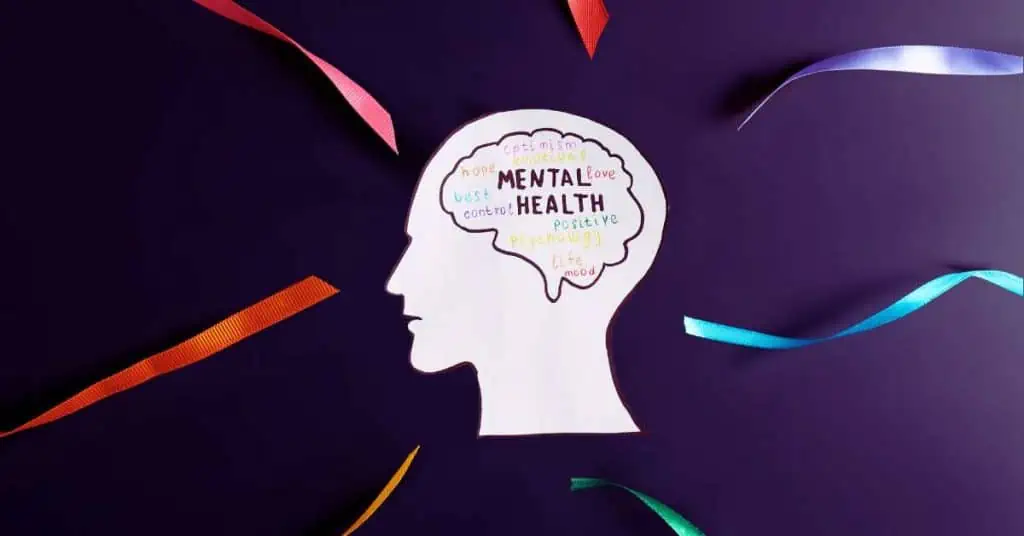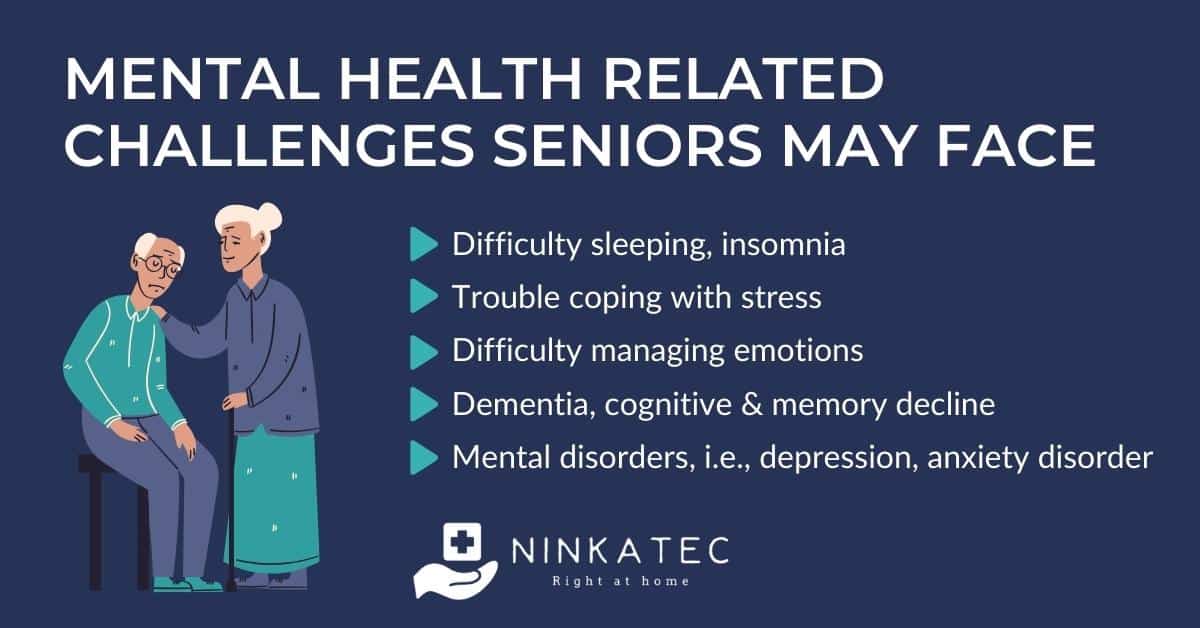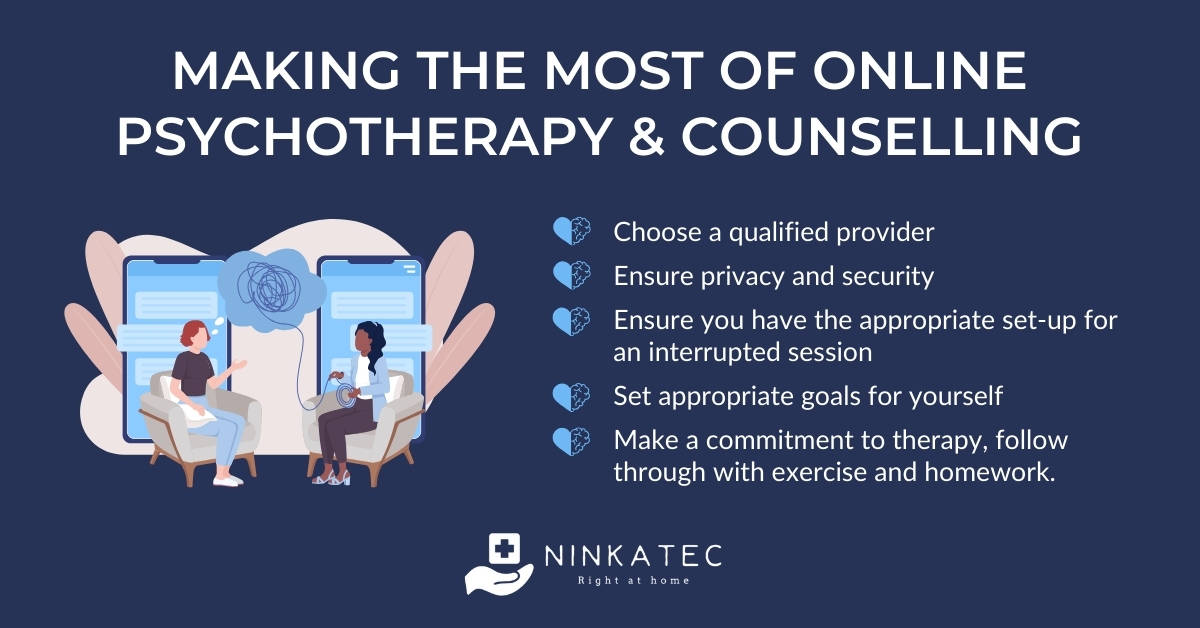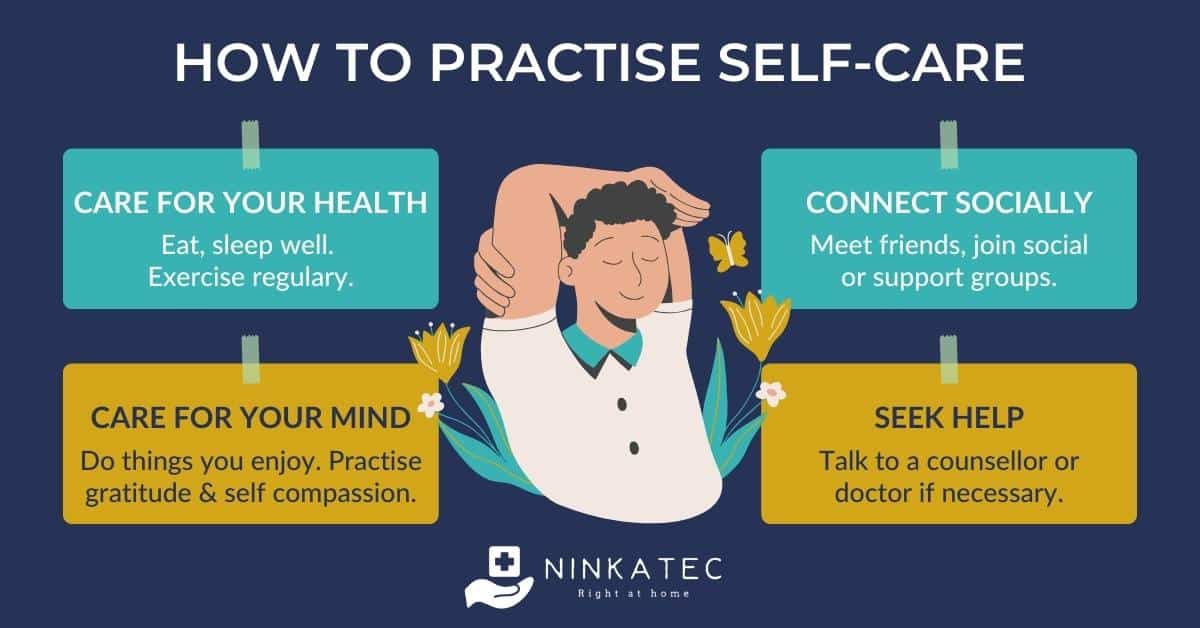Mental health is an intrinsic part of our well-being, as vital as our physical health. Its importance has never been more apparent than in today's fast-paced, 24/7 digitally connected world. Yet, being able to tell when we need to take care of our mental health remains much more challenging than knowing when we have a cold or flu and need a day off. Even when someone feels they need to speak out or get help with their mental health issue, the stigma and misunderstanding can hold them back.
We interviewed Dr Aaron Ang - an experienced psychiatrist at Tan Tock Seng Hospital to have him shed light on the top 10 things we need to know to take better care of our mental health. His scientific approach to the questions asked assures us that mental illness can be handled like other medical conditions such as diabetes or heart disease. However, diagnosing and treating mental illness has its own complexities that we also need to be aware of. Let’s dive in for the insightful details.
Table of Contents
1. How do we know when we have a mental health issue and not just stress? What are the tell-tale signs?
Experiencing stress is part and parcel of life. When under stress, the body responds to the demands and challenges by eliciting physical and emotional responses. The response to stress can be positive, i.e., eustress, or negative, i.e., distress. Stress is generally necessary for growth and adaptation.
Distinguishing between normal stress and a mental health issue can be challenging, as symptoms tend to overlap. For example, losing sleep and appetite can happen as a result of either stress or a mental health problem. However, there are core principles that help us tell a mental illness and stress apart, including:
- Duration and Intensity: Stress is usually a response to a specific situation and tends to be temporary. It goes away when the stressor is dealt with. Mental health issues, on the other hand, often persist for an extended period (typically at least two weeks) and can affect your daily life significantly. A red flag is when there is no obvious trigger and/or the physical or emotional response is disproportionate to the stressor.
- Change in Function: In medicine, a mental illness is classified as a “Mental Disorder”. In other words, it has to significantly affect your ability to function. The dysfunction or disorder can be physical and/or psychological, affecting one or more domains of your life such as work, school, relationships, or self-care. Generally, the greater the dysfunction, the more severe the illness.
Certain tell-tale signs that would caution seeking professional help include:
- Pervasive sense of helplessness, hopelessness and suicidal ideas, thoughts or plans. Persistent and inescapable thoughts of dying are not normal.
- Psychotic symptoms like hallucinations are also not normal and would need evaluation.
When in doubt, it would be prudent to reach out to a medical professional for an assessment.
2. What are common mental disorders in Singapore?
Major depression, anxiety disorder and psychotic disorder are the most commonly diagnosed mental disorders in Singapore.
- Major Depression is characterised by persistent and pervasive feelings of sadness, hopelessness, and a lack of interest or pleasure in activities. It is one of the most common mental disorders worldwide affecting about 10% of the population.
- Anxiety Disorder encompasses conditions like Generalised Anxiety Disorder, Panic Disorder, Phobias and Obsessive Compulsive Disorder. Anxiety Disorders are characterised by excessive worry and anxiety that result in dysfunction at school, work or in other areas of one’s life. Learn to differentiate between anxiety disorder and normal anxiety in our article here.)
- Schizophrenia (Psychotic Disorder) is a severe and chronic mental disorder that can affect a person's thinking, emotions, and behaviour. It often involves hallucinations, delusions, and impairments in cognitive function.
These mental disorders can affect any gender and age group, from children to elderly. Among seniors, other age-related health issues can exacerbate an existing mental disorder or increase its risks. Talk to a doctor if you or a senior loved one experiences long-term insomnia, faces difficulty managing emotions and stress or shows symptoms of dementia.
3. Where can I seek help for mental health issues in Singapore? Can and should I go to a GP?
In Singapore, medical doctors are trained to screen for mental illness and to make the appropriate referral to the Psychiatrist.
Specifically, General Practitioners (GP) would have the capability to manage less serious mental illness and initiate initial treatment for more severe conditions. As such, you can seek help from general practice clinics or the polyclinics when requiring it.
The GP doctor taking care of you may make a referral to the Psychiatrist when the condition is severe, or when the condition is mild but the person does not respond to the initial treatment.
However, when mental health raises immediate concerns such as personal safety risks, it is highly advisable to seek urgent help from emergency departments of general hospitals or at the Institute of Mental Health.
4. What is the most effective treatment of mental health problems?
Generally, treatment of mental health problems involves pharmacological (i.e., medications) and non-pharmacological (i.e., psychotherapy, counselling, psychosocial interventions). A combination of both modalities of treatment has shown to be most effective, especially for moderate to severe conditions. Milder cases may only require the mainstay of treatment psychotherapy and not medication. However, in severe conditions, medications are often very necessary. Most treatments can be initiated and maintained as an outpatient. Only severe conditions would warrant inpatient treatment.
Although these are the general treatment principles, it is essential to bear in mind that the best treatment plan needs to be tailored to the individual's specific needs, preferences, and the nature of their mental health condition. Ongoing communication and collaboration between the individual and their doctor is also crucial to monitor progress and make adjustments as needed (e.g., reduce medication and initiate counselling).
5. How does medication work for mental conditions?
Simply speaking, medication aims to regulate specific aspects of the brain chemistry associated with the mental condition being treated. Research has shown the association between imbalances in neurotransmitters in the brain and mental illness. Neurotransmitters are neurochemicals that transmit signals between nerve cells in the brain.
For example, the excess levels of dopamine in certain areas in the brain is associated with psychosis (schizophrenia) and reduced levels of serotonin in other areas of the brain is associated with depression and anxiety. As such, the use of psychiatric medication attempts to restore the balance of these neurotransmitters to their normal levels, thus alleviating symptoms.
Psychiatric medications used in Singapore are HSA approved and are therefore generally safe. However, as they may have side effects, they need to be initiated and monitored by a medical practitioner or psychiatrist.
(We wrote about regulating mental disorders with psychological medicines in more details on another blog post.)
6. How to treat mental illness without medication?
Not all mental disorder cases can be treated without medication. In mild or moderate cases where there is no imminent risk to personal safety, the individual can opt for psychotherapy without medications.
Psychotherapy, or talking therapy, has shown to be effective in treating mental conditions. However, compared to pharmacotherapy (i.e., medications), it usually takes longer to see the beneficial effect. This is because it requires the person to make a commitment to the therapy as only by actively participating in the process. The goal is to help the individual to be able to adopt new ways in dealing with the issues that precipitate, perpetuate and prolong the illness. But if fully engaged, psychotherapy can potentially be life changing, as the knowledge, skills and attitudes learnt to deal with life’s present challenges, can be used to cope with life’s future challenges.
Psychotherapy is broadly divided into solution focused or insight-oriented therapy. Examples of solution focused therapy include Cognitive Behavioural Therapy (CBT), Interpersonal Therapy (IPT) and Mindfulness Based Therapies. Examples of insight-oriented therapy include Psychodynamic Psychotherapy.
7. Why is mental illness hard to diagnose and treat?
There are a few reasons why mental illnesses are hard to diagnose and treat. These factors often overlap and affect one other.
Firstly, mental illnesses encompass a wide range of conditions and severity. Each condition may have its own set of symptoms, causes, and approaches with regards to treatment.
Secondly, psychiatric symptoms are often self-reported, relying on the individuals' descriptions of their thoughts, feelings, and behaviours. Coupled with the stigma of mental illnesses, it is common to see a person affected by a mental condition delay a visit to the doctor for evaluation and minimise or under-report their symptoms. In certain conditions, the illness causes the affected person to lack insight, thus resisting seeking professional help.
Thirdly, treatment generally requires a combination of biological i.e., medications (pharmacotherapy), and psychological i.e., counselling (psychotherapy) and social / environmental interventions (work or home environment). As such, for effective treatment, the person has to be an active participant in his or her treatment. A supportive living and working environment is also highly beneficial.
Thankfully, with increased awareness and advances in mental health care, there is greater opportunity to seek help from qualified professionals who can provide accurate diagnosis and appropriate treatment options, as well as getting support from family and friends.
8. How can families, friends, colleagues help someone with mental health problems?
To help others, we must first have appropriate awareness of mental health conditions and illnesses. A good starting point is to educate ourselves on mental health issues, the challenges someone with mental disorder may face, and the stigma associated with it.
Armed with the knowledge, we would be able to listen actively to the loved one, friend or colleague affected by mental illness without making prejudgement. Very often, people are looking for the comfort of a listening ear rather than a solution. The ability to share our feelings is therapeutic in itself, as it allows us to feel heard and understood.
Only when you can lend a listening ear without making judgement, would you try to offer support or encourage the person to seek professional help (if appropriate). Always be patient and respect boundaries. It may take time, and often courage, before the person is willing to accept help or advice. The role of family, friends and colleagues is to nurture a safe environment and to be there when the person is ready to get help.
9. Can you explain how psychiatrists, psychologists, and counsellors differ from one another? (When should we go to whom?)
Firstly, the similarities: Psychiatrists, psychologists, therapists, and counsellors are all professionals who provide mental health services. However, they differ in their education, training, and the types of services they offer.
Psychiatrists are medical doctors with a basic degree in Medicine (Undergraduate), but then specialise subsequently in Psychiatry (Post-graduate). Although capable of treating all psychiatric conditions, the focus for psychiatrists should be the more severe illnesses that require medication (only medical doctors are licensed to prescribe medications) and coordination of the various modalities of treatment (e.g., medication management, psychotherapy, and other medical interventions).
Clinical Psychologists have a basic degree in Psychology (Undergraduate) as well as a Masters or Doctorate in Psychology. This typically involves several years of graduate education and being supervised in assessing patients as well as performing therapy (psychotherapy). As such, the focus of a clinic psychologist would be to perform formal evaluations (e.g., IQ and cognitive tests, personality assessments) as well as perform psychotherapy that they are trained in (e.g., Cognitive Behavioural Therapy, Inter-Personal Therapy, Mindfulness-Based Therapy or Psychodynamic Psychotherapy). Psychologists do not prescribe medications.
Counsellors (sometimes referred to as Therapists) may have masters degrees or equivalent qualifications in counselling or related fields and often complete supervision and internship requirements. In Singapore's local context, some social workers have degrees. The focus of counselling is for persons with emotional and behavioural difficulties to feel empowered to employ various techniques to work through the challenges, thereby promoting their mental and emotional well-being. Common issues addressed include stress, grief, addiction and relationship conflicts. As they are not medical doctors, they do not prescribe medication.
The decision when to go to whom would depend on the individual's condition and severity, to assess which you could turn to the first line of care, i.e., your GP doctor or the polyclinic you have been visiting.
10. Is online treatment effective? How to make the most of online treatment?
Online psychotherapy or online counselling (also known as teletherapy) can be effective and convenient for many people. However, its effectiveness can vary depending on the individual (i.e., how comfortable with this platform you are), the type and severity of the mental health condition, and the quality of the online treatment provided.
To make the most of the online psychotherapy sessions, these are important tips to follow:
- Choose a qualified provider.
- Ensure privacy and security.
- Ensure you have the appropriate set-up and internet connection.
- Set appropriate goals.
- Make a commitment to therapy: Keep an open and honest attitude, follow through with exercise and homework.
11. Can you please share a takeaway for readers to take better care of the mental health of themselves and loved ones?
Multiple research studies have demonstrated that simple exercise in expressing gratitude can have a long lasting impact on happiness and well-being.
You can express gratitude to others or just to yourself. For example, you can thank someone for the kindness they show to you or write appreciation notes to colleagues and friends who have been supportive to you. Another thing to consider is listing 3 things that you were grateful for at the end of the day. They may be simple things like good weather, smooth traffic, or a delicious meal you had. Such simple acts would take no longer than a few minutes daily but have long lasting impacts for you and the people you interact with.
As such, I would encourage all readers to participate in simple acts and exercises in gratitude to promote good mental health.
About Dr Aaron Ang
Dr Aaron Ang is Adjunct Associate Professor at NUS-YLL School of Medicine and LKC-NTU School of Medicine, and Senior Consultant Psychiatrist in the Department of Psychological Medicine, Tan Tock Seng Hospital. His clinical interests are the Psychiatry of Old Age, Mental Capacity Assessment, and the Psychiatry-Medicine interface. From 2011 to 2018, he served as Head, Department of Psychological Medicine at Tan Tock Seng Hospital.
A keen educator, Aaron has been the Associate Program Director, National Psychiatry Residency Program since its inception in 2009 to 2018. He also gave talks and joined interviews to share his knowledge with the public. Read the recap of his talk on early detection of dementia and the possibility of more effective treatment here.
About Ninkatec
Ninkatec provides comprehensive elderly care services including mental and cognitive health care, both at home and in clinic, supporting seniors and their families through the complexities of aging-related mental health challenges. We understand that when concerns arise about a loved one's cognitive abilities or mental wellbeing, professional guidance and compassionate specialised care can make a difference.
Our specialized services include:
- Memory Assessment and Early Dementia Detection - Professional evaluation to distinguish between normal aging, treatable conditions, and early signs of dementia. Early detection opens doors to better treatment options and care planning.
- Mental Capacity Assessment - When questions arise about a person's ability to make important decisions about their health, finances, or living arrangements, our comprehensive assessments provide clarity for families and healthcare providers.
- Dementia Home Care Services - Compassionate, specialised care that allows seniors to remain in the comfort of their own homes while receiving the support they need.
If you're concerned about a loved one's mental health, memory, or decision-making abilities, our experienced team is here to help guide you through the next steps with professional assessment and personalised care solutions. Call, chat, or enquire with us to find out more about how we can support your family.












